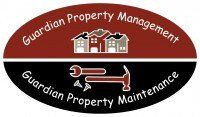From Expansion to Recovery — How to Navigate the Real Estate Market Cycle
The real estate market is dynamic and ever-changing, constantly shifting through different phases known as the market cycle. Understanding and learning how to navigate the real estate market cycle can significantly impact your success as a real estate investor or homebuyer.
Each stage of the real estate market cycle represents unique opportunities and challenges, and by recognizing the indicators and implementing the right strategies, you can maximize returns and mitigate risks.
Whether you're looking to invest or buy a property, you will find all your answers here as we delve into the intricacies of how to navigate the real estate market cycle, equipping you with the knowledge to plan your journey successfully.
What are Real Estate Market Cycles?
The real estate market runs on a four-stage cycle, which reflects how dynamic it is. These phases are
recovery, expansion, hyper-supply, and recession. Investors hoping to purchase land should understand the significance of each stage and what it means for the real estate market.
Investors can learn much from the real estate market cycle because it sheds light on potential investment properties. It is essential to determine the stage of the property cycle before making a purchase. This data precisely predict the best times to acquire, sell, or maintain the property. Understanding the real estate cycle also aids in evaluating the likelihood of rental income and property appreciation. Investors must be aware of each stage of the real estate cycle, but this information can also be helpful to professionals in the real estate industry.
Importance Of The Real Estate Market Cycle
Investors must comprehend the real estate cycle since it offers important insights into the prospective returns of an investment property. You can decide on the ideal time to hold the property and the best exit strategy to use by determining which stage of the cycle your property is in—recovery, expansion, hyper-supply, or recession.
Additionally, the real estate cycle can aid in forecasting an investment property's income and appreciation performance, allowing you to make better choices about whether to make capital improvements. Investors must stay current on the real estate cycle to maximize their returns and reduce risks.
Navigating The Four Stages of The Real Estate Market Cycle
A cycle with four phases that has been repeated throughout history governs the real estate market. It's crucial to remember that these phases are not linear and are part of a cycle that never stops whirling. Despite being the first phase, the recovery phase—after the recession phase, when the market is at its lowest point—is thought to signal the bottom of the cycle.
Let's examine the four stages of the real estate cycle in more detail:
Recovery
When the real estate market is most damaged, the recovery phase starts, and things gradually improve. Since it is the longest stage of the cycle, many homes are offered for sale below market rates. In preparation for the expansion phase, developers can refurbish existing homes and profitably resell or rent them. Purchasing at the proper time throughout the recovery phase is essential to minimize a negative impact on ROI.
Expansion
During this stage, when housing demand is high and the number of renters is rising, the real estate market is deemed to be in good health. It's the busiest and most profitable stage of real estate development. During this period, developers should actively buy and develop properties while selling acquired homes for above-market value.
Hyper-Supply
This stage happens when more unsold homes and vacant rental units are on the market than buyers. It results from excessive property expansion and development. To maximize their earnings when selling their properties during the following phase, developers should cling to them during this period.
Recession
The market has peaked during this stage, and supply vastly outpaces demand. For many in the real estate sector, the present is a time of panic, but recovery will come. Developers have two options: get a head start on buying properties below market value and see a massive return during the following growth period, or maximize ROI and store up money for the recovery phase.
Factors Affecting the Real Estate Market Cycle
Numerous variables can affect the housing market cycle, but the ones to focus on most include the state of the economy, interest rates, demography, and governmental policy.
Economic Factors
The state of the US and the global economy significantly impact real estate cycles. When the economy is doing well, more individuals are interested in purchasing real estate, which raises the demand for homes. On the other hand, the real estate market usually struggles along with the economy.
Interest Rates
Another significant factor that has an impact on real estate markets is interest rates. Low-interest rates can promote demand for properties as financing becomes more affordable, whereas high-interest rates can discourage investors or homebuyers from investing in real estate.
Demographics
Populace moves or overall public development can fundamentally affect housing markets. It is essential to comprehend your target demographic. You ought to likewise consider where individuals need to live and the interest in rentals in a specific region.
Government Policies
Government policies can also impact the real estate cycle by incentivizing buyers or sellers. Tax deductions, tax credits, or homebuyer programs can be put in place to encourage people to purchase real estate. As a result, these elements may significantly affect the housing market cycle.
How Long Does the Average Real Estate Market Cycle Last?
It might be difficult to estimate the precise length of a real estate cycle. Financial analysts might foresee the next major economic shift, like a recession. Still these forecasts are never certain, and it's impossible to anticipate with any degree of certainty when a new stage of the housing market cycle will start. Real estate cycles can also differ greatly in length.
How To Invest Based On the Real Estate Cycle
While there is no rulebook directing which technique to follow during a specific period of the real estate market cycle, certain speculation patterns really do relate to it. Based on the real estate cycle, here are some common types of investments to consider:
Recovery
During the recovery stage, there are several excellent choices, including wholesale, rehabbing, buy and hold, multifamily investments, and hard and private money loans. To ensure that new investments don't sit idle, monitoring rental demand is crucial.
Expansion
During the expansion phase, buy and hold, multifamily and commercial acquisitions, and property development may be the best course of action. During this phase, when expenses are still cheap, investors could try their hand at new buildings or redevelopment. But it's important to keep an eye out for the following stage.
Hyper Supply
Many investors opt to stay put with buy-and-hold properties during a period of excessive supply. Depending on their cash reserves and current circumstances, some investors might decide to sell off some investments out of fear of an impending recession.
Recession
During a recession, investing in foreclosed and bank-owned properties as well as private and hard money lending are excellent choices. To stay on top of the market, it's critical to watch for signs of recovery and keep in mind that recessions are high-risk periods.
Keep in mind that a lot of investors might have different ideas about where we are in the real estate cycle. It is acceptable that you cannot fully determine where we are in this cycle because economists make their careers out of analyzing the current financial environment. Just remember to use the market information you have to make educated investment choices.
Summary
Understanding how to navigate the four stages of the real estate market cycle is crucial for all present and prospective investors. Additionally, all real estate professionals can benefit from a grasp of real estate markets. For instance, it is vital to work with professionals that have experience buying, selling, and managing real estate.
Fortunately, our property managers at Guardian Property Management have the skills and knowledge necessary to support the success of your rentals. We can help you with all of your needs, including marketing your properties, finding tenants, and managing your accounts.
Contact
Guardian Property Management right away if you require rental management in Bloomington, Maple Grove, Inver Grove Heights, New Brighton, Eden Prairie, and other locations in MN. Give us a call at 6512872011.















